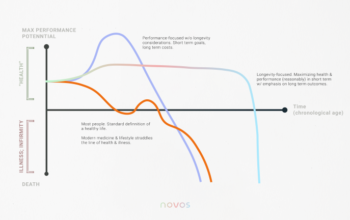Chest pain remains one of the common reasons for medical consultations and hospital visits. It can be alarming, as many immediately think of a heart attack. However, chest pain does not always mean a heart problem. It can also be linked to issues such as anxiety, digestive problems, or muscle strain. Understanding the possible causes is important, as the right response depends on the reason behind the discomfort.
Recognising the difference between heart-related and anxiety-induced chest pain can help patients make informed decisions. When it comes to treatment, leading hospitals in India, especially in Delhi, provide treatment for Chest Pain in Delhi with complete care.
Heart-Related Causes of Chest Pain
When chest pain is linked to the heart, it often signals reduced blood flow to the muscle. The most common causes include angina and heart attacks. Angina occurs when narrowed arteries reduce blood flow, leading to chest pressure or tightness, particularly during physical activity. A heart attack, on the other hand, occurs when the blood supply to the heart is blocked, often by a clot.
Heart-related chest pain may spread to the arms, neck, jaw, or back. It may also come with sweating, breathlessness, nausea, or dizziness. These signs must never be ignored, as a quick diagnosis can prevent complications and save lives. Hospitals in Delhi have dedicated centres with cardiology specialists to evaluate and manage such conditions with accuracy.
Anxiety and Chest Pain
Not all chest discomfort comes from the heart. Anxiety and panic attacks can also trigger sharp or tight sensations in the chest. During high stress or panic, the body releases stress hormones like adrenaline, which increase heart rate and muscle tension. This can create pain that feels similar to cardiac pain.
Unlike heart pain, anxiety-related chest pain often comes with fast breathing, shaking, and a feeling of losing control. While it may not cause direct harm to the heart, it still requires attention. Repeated episodes of anxiety-related chest pain can reduce quality of life and increase long-term stress on the body. Seeking support from mental health professionals can help patients better manage their symptoms.
Other Possible Causes
Chest pain can also arise from other conditions. Some of the common non-cardiac reasons include:
- Digestive problems such as acid reflux or oesophageal spasms.
- Musculoskeletal pain from strained chest muscles or injuries.
- Lung conditions like pneumonia, pleurisy, or pulmonary embolism.
These conditions can feel similar to heart pain and often cause confusion. That’s why even mild chest discomfort should never be ignored and must be checked by a doctor.
When to Seek Immediate Help
While chest pain can have many causes, certain warning signs mean urgent medical attention is necessary. These include:
- Pain lasting more than a few minutes or returning frequently.
- Discomfort that spreads to the arms, neck, jaw, or back.
- Pain that comes with breathlessness, nausea, or fainting.
- Sudden sweating, dizziness, or weakness with chest pressure.
Recognising these signals can save valuable time. Patients should not delay when such symptoms appear, as early intervention makes a crucial difference.
Top hospitals in Delhi provide the treatment of chest pain in line with international standards while keeping costs manageable.
Managing Heart-Related Chest Pain
Management of cardiac chest pain often involves lifestyle changes, medicines, or procedures to restore blood flow. Doctors may suggest changes in diet, exercise, and stress control, alongside prescribed treatments. In severe cases, interventions like angioplasty or bypass surgery might be necessary. Regular follow-ups and adherence to medical advice are crucial to reducing future risks.
Managing Anxiety-Related Chest Pain
When chest pain stems from anxiety, treatment focuses on managing stress and panic symptoms. Breathing exercises, counselling, and relaxation techniques can be effective. In some cases, doctors may prescribe medicines to manage anxiety. Patients benefit from addressing the underlying emotional triggers, which helps reduce episodes of chest discomfort.
Why Proper Diagnosis Matters?
Chest pain is a symptom with many possible causes, and guessing the reason can be dangerous. Only a medical professional can distinguish between heart-related and anxiety-induced pain through physical examination, medical history, and diagnostic tests like ECG, blood tests, or imaging. Accurate diagnosis ensures that patients receive proper care without unnecessary delays.
Conclusion
Chest pain can arise from the heart, anxiety, or other medical conditions. While some causes may be less harmful, others can be life-threatening. That is why a medical assessment is essential for every case. By recognising the difference between heart-related and anxiety-related chest pain, patients can respond quickly and appropriately. With timely care and professional guidance, risks can be reduced and health outcomes can improve.




